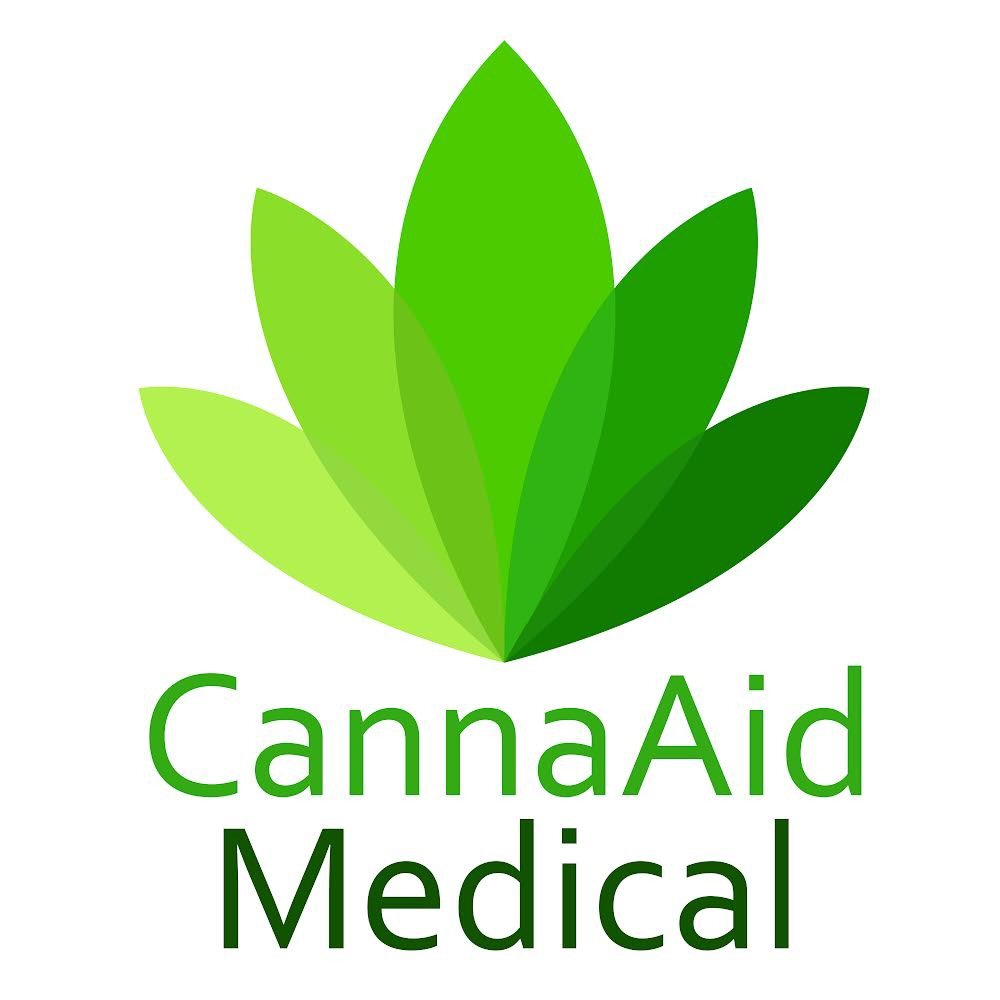A Comprehensive Guide To Medical Marijuana Nsw
As Australia warms up to the concept of medicinal marijuana, we see NSW stepping up as a prominent supporter. The combined efforts of well-informed consumers, specialised providers, and an encouraging legal landscape make it clear that there’s a shift in the approach to medicinal cannabinoids across NSW and Sydney.
Join us as we explore the fascinating world of medicinal marijuana in Australia, taking you through its beginnings, its increasing acceptance, regulatory aspects, and its potential to help people cope with various health conditions.
Together, let’s venture into the enthralling world of medical marijuana in NSW.
Historical Perspective
Medical cannabis was primarily used as a natural remedy for various ailments back in the day. However, it’s making a comeback as a safe and effective way of treating over 130 diseases ranging from PTSD to Anxiety and many others.
Public Perceptions and Changing Attitudes
Public perceptions of medical cannabis are changing as research and awareness increase. Though initially met with hesitance, the growing body of evidence demonstrating the benefits of medicinal cannabinoids NSW has led to greater acceptance over the years.
Current Legal Framework For Use Of Medicinal Marijuana In NSW , Australia
The Therapeutic Goods Administration, or TGA, is the regulatory authority that governs the use of medical cannabis in NSW. The use of Medical Marijuana in Sydney has been legal since 2016, provided you have a valid prescription for your ailment.
You can learn more about the legal framework that governs the use of medical marijuana here.
Eligibility Criteria For Patients Seeking Access To Medical Marijuana In NSW
Acquiring a medical cannabis prescription in New South Wales requires you to have a persistent chronic ailment, enduring for over three months, that hasn’t found relief through regular methods.
Please refer to this list of licensed Medical Marijuana Doctors to find the best doctor for you.
How Does Medical Marijuana Work?
Medical marijuana works primarily through cannabinoids like CBD (cannabidiol) and THC (tetrahydrocannabinol). These interact with the endocannabinoid system (ECS) in our bodies, which regulates pain, mood, appetite, sleep, and immunity.
Forms Of Medical Marijuana
- Capsules
- Chewables
- Cream
- Flower (including granulated flower)
- Lozenges
- Oil
- Vapes
- Spray
Benefits Of Medical Marijuana

Medical marijuana has shown efficacy in:
- Pain management, a leading cause of disability worldwide.
- Mitigating side effects of cancer treatment like nausea and weight loss.
- Controlling severe forms of epilepsy.
- Reducing eye pressure in glaucoma patients.
- Managing PTSD symptoms.
- Improving sleep for those with pain, insomnia, etc
- Stimulating appetite in some patients.
- Controlling severe muscle spasms, particularly in Multiple Sclerosis.
- Reducing anxiety for some individuals.
What Conditions Can Medical Marijuana Help?
Medical marijuana can alleviate a range of symptoms from various conditions, including epilepsy, glaucoma, severe and chronic pain, harsh side effects from cancer treatments, certain mental health conditions like PTSD, muscle spasms, nausea, and more.
How To Get Medicinal Cannabis In Sydney & NSW?
There are a few different pathways to get legal medical marijuana in NSW. Firstly, any doctor with the approval of TGA can prescribe medical cannabis to any patient whom they see fit and who meets the criteria of eligibility.
Alternatively, any Australian can get access to medical cannabis based treatment by participating in eligible trials for medicinal cannabis based therapies. Doctors can access unapproved medical cannabis products for patients through two programs, primarily.
- The Special Access Scheme allows access on a case-by-case basis for individual patients.
- The Authorised Prescriber Scheme provides ongoing access for specified patient cohorts.
Who Can access Medical Cannabis in Sydney & NSW?
In Australia, medical cannabis is used to treat over 130 chronic conditions, including anxiety, PTSD, pain, insomnia, epilepsy, multiple sclerosis, autism, fibromyalgia, ADHD, and more.
To qualify, the condition must:
- Have persisted over 3 months
- Be resistant to conventional treatments
Cannabis is considered an alternative treatment, so patients typically can’t get it as a first option. However, you don’t need to exhaust all other treatments. You must have tried other options, either pharmaceutical or non-pharmaceutical, and found them ineffective or causing unpleasant side effects.
How Do Medical Cannabis Treatment Work?

Medical cannabis prescriptions work the same way as regular prescriptions. You need a doctor to prescribe medical Marijuana treatment and for the prescription to be approved by the TGA.
What Types of Cannabis Can Be Prescribed?
When prescribing medical cannabis, doctors usually consider:
- THC to CBD ratio: This determines the levels of the two major cannabinoids.
- Cannabis cultivar: The specific strain impacts the effects.
- Form of administration: Options include oils, capsules, sprays, vapes, and dried flowers.
Doctors can choose from a wide variety of forms, strains, and THC concentrations to best suit each eligible patient’s needs.
How Can I Consume Medical Cannabis (Marijuana) in NSW?
To consume medical cannabis legally in NSW, you must get a prescription from an authorised provider like CannaAid Medical. Then, based on your condition, you can consume medical cannabis in various forms as prescribed by your doctor.
The Cost Of Medical Marijuana In NSW and Sydney
The average cost for use of Medical Marijuana per patient is around $150-$300 per month, which doesn’t include the cost of your consultation with the prescribing doctor, which is usually between $80-$150.
The cost varies based on multiple factors. You can learn more about medical marijuana costs in NSW.
Side Effects Of Medical Marijuana
While medical cannabis is generally considered safe, it can have some adverse effects on a person-to-person basis.
– Impaired concentration and memory
– Adverse drug interactions
– Exacerbation of mental health conditions
– Temporary hallucinations from high doses
– Fluctuations in blood pressure
– Dizziness or drowsiness
– Gastrointestinal issues
– Respiratory impairment from long-term use
– Increased risk of mood disorders like depression and anxiety
Who Should Not Use Medical Marijuana?
Anyone with a history of psychosis or predetermined allergy or side effects of Medical Marijuana should steer clear of medical cannabis use.
Conclusion
We hope we’ve answered all the doubts you may have had in your mind about the consumption of medical cannabis in NSW. As research grows and perceptions shift, medical cannabis is becoming increasingly accepted in Australia for treating over 130 conditions.
With proper prescriptions and regulatory oversight, medicinal marijuana offers a safe, effective alternative for managing symptoms and improving the quality of life for many patients. More people now recognise its vast potential.
FAQs
Frequently Asked Questions About Medical Marijuana in NSW
What conditions qualify for medical marijuana in NSW, Sydney ?
To qualify for medical marijuana in Sydney, NSW, patients must have a diagnosed medical condition that falls within the list of approved ailments. Conditions typically include chronic pain, epilepsy, multiple sclerosis, cancer-related symptoms, and HIV/AIDS. It’s essential to consult with a qualified healthcare professional to determine eligibility for medical marijuana.
- Approved medical conditions
- Consultation with healthcare professional
- Documented diagnosis required
How can I obtain a prescription for medical marijuana in NSW, Sydney?
Obtaining a prescription for medical marijuana in Sydney involves several steps. First, patients must consult with a medical practitioner who is authorized to prescribe medical cannabis. If the doctor deems it appropriate, they will issue a prescription. Patients then need to register with the Therapeutic Goods Administration (TGA) and locate an approved pharmacy to fulfill their prescription.
- Consultation with authorized medical practitioner in NSW
- TGA registration
- Obtain prescription from an approved pharmacy
How long does it take to receive approval for medical marijuana in NSW?
The approval process for medical marijuana in NSW varies but typically takes a few weeks. After consulting with a healthcare professional and obtaining a prescription, patients must wait for approval from the Therapeutic Goods Administration (TGA). Being aware of this timeline is crucial for those considering medical cannabis as part of their treatment plan.
What Is The Most Effective Form Of Medical Marijuana?
There isn’t a one-size-fits-all answer. Different consumption methods may be better suited for different conditions or situations
Is Cannabis A Registered Medicine
No, cannabis is not a registered medicine as per the TGA guidelines.
Is Marijuana Legal In Australia?
Medical Marijuana is legal in NSW and approved for personal use based on a doctor’s prescription.
What are the legal regulations surrounding medical marijuana use in NSW, Sydney?
The legal regulations regarding medical marijuana use in Sydney, NSW are outlined by the Therapeutic Goods Administration (TGA) and the state government. Patients must adhere to these regulations to ensure compliance. It’s crucial to be aware of the permitted forms of medical cannabis, possession limits, and any restrictions on cultivation.
- TGA guidelines
- State government regulations
- Compliance with permitted forms and possession limits
Can I drive or operate heavy machinery while using medical marijuana In NSW?
No, it’s illegal to drive under the effects of Medical Marijuana in NSW
It is strongly advised against driving or operating heavy machinery while under the influence of medical marijuana. Cannabis can impair cognitive functions, affecting coordination and reaction times. Patients should follow the guidelines provided by healthcare professionals and refrain from engaging in activities that require heightened alertness.
- Avoid driving or operating heavy machinery
- Impaired cognitive functions
- Follow healthcare professionals’ guidelines
Does Medical Marijuana Have THC?
Medical marijuana is derived from the Cannabis plant and can include various chemical compounds known as cannabinoids. One of these cannabinoids is THC, which is responsible for the psychoactive effects commonly associated with cannabis use. While some medical marijuana products are designed to be high in THC, others are formulated with lower THC levels and higher concentrations of other cannabinoids like CBD (cannabidiol).
It’s essential to note that the presence and proportion of THC in medical marijuana depend on the specific strain and product prescribed by a healthcare professional. Different strains have different ratios of THC to other cannabinoids, influencing the therapeutic effects and potential side effects. Patients should discuss THC levels with their healthcare provider to ensure that the prescribed medical marijuana aligns with their treatment goals and preferences.
Key Information:
- Medical marijuana can contain THC.
- THC levels vary among strains and products.
- Patients should discuss THC levels with their healthcare provider for personalized treatment.
Are there any potential side effects associated with medical marijuana use?
Like any medication, medical marijuana may have side effects. Common side effects include drowsiness, dizziness, and dry mouth. It’s crucial for patients to be aware of these potential effects and report any adverse reactions to their healthcare provider promptly.
- Common side effects
- Drowsiness, dizziness, dry mouth
- Report adverse reactions to healthcare provider
Does Medicare Cover Medical Marijuana?
No. Medicare does not cover Medical Marijuana. Some private insurance providers are, however, now accepting Medical Marijuana treatments in their plans.
insurance coverage for medical marijuana in NSW is limited. Most insurance providers do not cover the costs associated with medical cannabis. Patients should be prepared to bear the expenses out-of-pocket and explore alternative financial assistance options if necessary.
- Limited insurance coverage
- Out-of-pocket expenses
- Explore alternative financial assistance options
Can You Be Fired For Using Medical Marijuana?
Your employer may decide their rules of employment, and if you don’t follow them, you may be fired for using medical marijuana.
To obtain a medical marijuana card in New South Wales (NSW), follow these steps:
Consultation with a Qualified Doctor: Initiate the process by scheduling a consultation with a registered medical practitioner authorized to prescribe medical cannabis in NSW.
Medical Assessment and Eligibility: During the consultation, discuss your medical history and symptoms. The doctor will assess your eligibility for medical cannabis based on the Therapeutic Goods Administration (TGA) guidelines.
TGA Approval and Prescription: If deemed suitable, the doctor will submit an application to the TGA for approval. Upon approval, you’ll receive a prescription specifying the type and dosage of medical cannabis.
Key Information:
- Consult with an authorized medical practitioner.
- Eligibility is determined based on TGA guidelines.
- The TGA approval process is crucial before receiving a prescription.
How does medical marijuana differ from recreational use?
Medical marijuana is used for treating specific medical conditions under the guidance of a healthcare professional, with doses tailored to therapeutic needs. Recreational use is non-medical, focused on achieving a “high” or altered state for enjoyment, and is often used without medical oversight.
Can medical marijuana be addictive?
While medical marijuana is generally considered to have a lower risk of addiction compared to recreational use, it is not entirely without risk. Some individuals may develop a dependence on it. It is crucial to use medical marijuana under the guidance of a healthcare professional and follow prescribed dosages to minimize the potential for addiction.
Are there age restrictions for medical marijuana use in NSW?
Yes, there are age restrictions for medical marijuana use in Australia. Patients must generally be 18 years or older to qualify for medical cannabis treatment, and parental consent may be required for patients under 18 in certain cases.
It’s essential to consider these age requirements and consult with healthcare professionals to explore alternative treatments for younger patients.
- Minimum age requirement: 18 years
- Age restrictions for medical marijuana
- Explore alternative treatments for younger patients
Are there risks associated with long-term medical marijuana use?
Long-term medical marijuana use may pose certain risks:
Cognitive Effects: There is potential for cognitive effects, including memory and concentration issues, especially with prolonged use.
Dependency Risks: Some individuals may develop a dependency on medical cannabis, necessitating careful monitoring by healthcare professionals.
Respiratory Concerns: For those using smoked or vaporized forms, respiratory issues may arise, emphasizing the importance of considering alternative administration methods.
Key Information:
- Potential cognitive effects with prolonged use.
- Risk of dependency, requiring monitoring.
- Consider alternative administration methods to mitigate respiratory concerns.
Can I Modify My Medical Marijuana Treatment Plan?
Modifying your medical marijuana treatment plan should be done in consultation with your healthcare provider:
Regular Follow-ups: Schedule regular follow-up appointments with your healthcare provider to discuss the effectiveness of the treatment and any necessary adjustments.
Side Effect Management: If you experience side effects or concerns, communicate these to your healthcare provider for guidance on potential modifications to your treatment plan.
Dosage Adjustments: Based on your response to the treatment, your healthcare provider may recommend dosage adjustments or changes to the type of medicinal cannabis used.
Key Information:
- Schedule regular follow-ups with your healthcare provider.
- Communicate any side effects or concerns.
- Dosage adjustments may be recommended based on treatment response.
Feel free to incorporate these additional sections into your FAQ for a more comprehensive guide on medical marijuana in NSW.
Can I switch between different strains or forms of medical marijuana?<
Patients in NSW have the flexibility to switch between different strains or forms of medical marijuana based on their response to treatment. However, it’s crucial to consult with a healthcare professional before making any changes to the prescribed treatment plan to ensure safety and efficacy.
- Flexibility to switch strains or forms
- Consultation with healthcare professional
- Ensure safety and efficacy when making changes to treatment plan
How can I report suspected misuse or illegal activities related to medical marijuana in NSW, Sydney
Reporting suspected misuse or illegal activities related to medical marijuana in NSW, Sydney can be done through law enforcement agencies or the TGA. It’s essential to contribute to maintaining the integrity of the medical marijuana program by reporting any concerns promptly.
- Report to law enforcement or TGA
- Contribute to program integrity
- Prompt reporting of suspected misuse or illegal activities
Step into a world of relief with CannaAid’s dedicated approach to natural pain management.
We’re committed to alleviating suffering through plant-based medicine and providing a haven for those ready to break free from the restrictions of traditional medicine.
Check your eligibility
You may qualify for the use of plant-based medicinal treatment in Sydney if you fulfill the following conditions.








